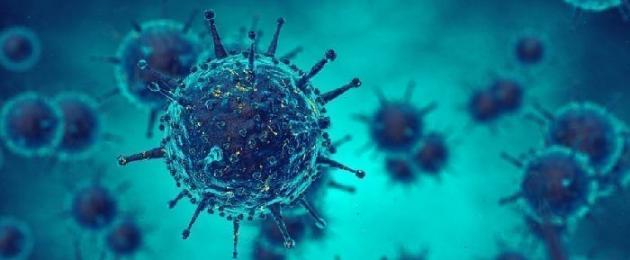KINGDOM
1) in biology - the highest unit in the system of living organisms. There are 5 kingdoms: archaebacteria, bacteria, animals, fungi and plants. Kingdoms are divided into sub-kingdoms and further - into types. Many scientists propose to single out taxa of an even higher rank than the kingdom - superkingdoms, uniting archaebacteria and bacteria into the superkingdom of prokaryotes, and 3 other kingdoms - into the superkingdom of eukaryotes;
2) in biogeography - the highest unit of floristic and faunal zoning of land and the World Ocean.
Encyclopedia Biology. 2012
See also interpretations, synonyms, meanings of the word and what is KINGDOM in Russian in dictionaries, encyclopedias and reference books:
- KINGDOM in the Big Encyclopedic Dictionary:
- KINGDOM in the Great Soviet Encyclopedia, TSB:
(biological), 1) one of the highest taxonomic categories (ranks) in the system of the organic world. Since the time of Aristotle, the division of all ... - KINGDOM in the Modern Encyclopedic Dictionary:
- KINGDOM in the Encyclopedic Dictionary:
(biological), the highest taxonomic category (rank). Since the time of Aristotle, the entire organic world has been divided into two kingdoms: plants and animals. In modern… - KINGDOM in the Encyclopedic Dictionary:
, -a, cf. 1. The state headed by the king (obsolete and special). 2. The board of someone. king, reign. Choose on c. … - KINGDOM
KINGDOM OF POLISH, called. part of Poland, which became part of Russia in 1815 by decision of the Vienna Congress of 1814-15. The capital is Warsaw. … - KINGDOM in the Big Russian Encyclopedic Dictionary:
KINGDOM (biol.), higher. taxonomic category (rank). Since the time of Aristotle, the entire organic the world was subdivided into 2 centers: districts and railways. V … - KINGDOM in the Full accentuated paradigm according to Zaliznyak:
kingdom "kingdom, kingdom" kingdom, kingdom "kingship, kingdom" kingdom, kingdom "kingship, kingdom" kingdom, kingdom "kingdom, kingdom" kingdom, kingdom "kingship, kingdom" kingdom, kingdom "kingdom, ... - KINGDOM in the Dictionary for solving and compiling scanwords:
patrimony… - KINGDOM in the Thesaurus of Russian business vocabulary:
‘state’ Syn: … - KINGDOM in the Russian Thesaurus:
‘state’ Syn: … - KINGDOM in the Dictionary of synonyms of Abramov:
see power, state, circle, region || sleepy… - KINGDOM in the dictionary of Synonyms of the Russian language:
hades, state, land, empire, category, kingdom, monarchy, government, country, sphere, han, kingdom, … - KINGDOM in the New explanatory and derivational dictionary of the Russian language Efremova:
cf. 1) a) A state ruled by a king (1), a queen (1). b) The lands of such a state. c) The population of such a state. d) transfer. A place, … - KINGDOM in the Dictionary of the Russian Language Lopatin:
Kingdom (Kingdom) ... - KINGDOM
kingdom... - KINGDOM in the Complete Spelling Dictionary of the Russian Language:
Kingdom (Kingdom) ... - KINGDOM in the Spelling Dictionary:
kingdom (kingdom) ... - KINGDOM in the Spelling Dictionary:
kingdom, ... - KINGDOM in the Dictionary of the Russian Language Ozhegov:
one of the four higher spheres of the organic world Spec C. animals. C. plants. C. mushrooms. C. shotguns. kingdom of one kind or another... - KINGDOM in the Modern Explanatory Dictionary, TSB:
in biology - the highest taxonomic category (rank). Since the time of Aristotle, the entire organic world has been divided into two kingdoms: plants and animals. … - KINGDOM
kingdoms, cf. 1. A state ruled by a king. Moscow kingdom. Past the island of Buyan to the kingdom of the glorious Saltan. Pushkin. 2. Only units. Governing body … - KINGDOM in the Explanatory Dictionary of the Russian Language Ushakov:
heavenly - see heavenly in 3 meanings, cf. …
The nature of our planet is rich and diverse. To systematize it, all living organisms were conditionally divided into kingdoms. In this article, you will find out how many kingdoms of wildlife exist on Earth, get acquainted with the hallmarks of all living things.
Initially, all living organisms are divided into two empires: cellular (made up of cells) extracellular (viruses).
Viruses cannot synthesize protein on their own. It is produced when cells become infected.

Rice. 1. Viruses.
Cellular organisms are divided into four kingdoms:
- bacteria (protozoa) - are arranged quite simply, they have no organelles, no nuclear envelope, DNA molecules are located in the cytoplasm. Nutrition of such organisms can occur through the cell surface or independently produce nutrients (blue-green algae). Bacteria can be both beneficial and harmful. They are used for fermenting vegetables, preparing fermented milk products. But there are pathogenic bacteria that are dangerous to human life and health.
- Plants - the hallmark of a plant cell are plastids, one of which is chloroplasts. Photosynthesis takes place in them - the process of formation of organic nutrients from inorganic substances (water, carbon dioxide) under the influence of solar energy.
All plants "cook their own food" (autotrophs). The main ingredients are water, air and sun.
The structure of a plant cell is more complex than that of bacteria. There is a dense shell, which includes cellulose. The cytoplasm contains organelles, each of which performs certain functions (protein synthesis, accumulation of nutrients, etc.).
Another distinguishing feature of a plant cell is the presence of a vacuole - a container where nutrients or waste products of metabolism are stored.
TOP 4 articleswho read along with this
- Mushrooms - the kingdom of wildlife, which combines the signs of plants and animals. The resemblance to a plant organism is the presence of a dense cell wall, which is formed from chitin. Mushrooms do not have plastids, so they cannot “cook their own food” themselves. Just like animals, they are heterotrophs. Mushrooms feed on ready-made nutrients by absorption from the environment. A special structure in a fungal cell is a hypha, which forms whole plexuses of threads called mycelium.
- Animals are heterotrophs. The animal cell does not have a dense shell, so some of them can contract, forming muscle tissue. This feature makes it possible to actively move, the musculoskeletal system appears. Animal cells have centrioles located near the nucleus, which play an important role during the division process.

Rice. 2. Kingdoms of wildlife.
Distinctive features of wildlife
The distinguishing features of the kingdoms of wildlife include:
- the presence in the cells of organic substances (proteins, fats, carbohydrates, nucleic acids);
- the structural and functional unit is the cell;
- metabolism, i.e. a set of transformations, chemical reactions within the body during respiration and nutrition;
- response to environmental influences or irritability;
- reproduction - reproduction of similar individuals;
- the ability to adapt to environmental conditions;
- the ability to evolve, which gives such a variety of all living things;
- body growth and development.

Rice. 3. Signs of wildlife.
What have we learned?
Living nature is divided into four kingdoms: bacteria, plants, fungi and animals. Viruses are considered a separate kingdom, since they do not have a cellular structure. Every living thing on the planet has its own distinctive features. These include respiration, reproduction, nutrition, growth and development, without which the normal functioning of the body is impossible. With the help of this material, you can quickly and easily restore knowledge for the 5th grade of biology, prepare for any test work on the topic.
Topic quiz
Report Evaluation
Average rating: 4.3. Total ratings received: 682.
They were divided into two kingdoms - the kingdom of animals and the kingdom of plants. The main difference between animals and plants was the mode of nutrition. Animals were those who used ready-made organic material as food ( heterotrophic mode of nutrition), plants - organisms that themselves synthesize the necessary organic material from inorganic compounds ( autotrophic mode of nutrition). More precisely, heterotrophic organisms are those that should receive it in the form of its organic compounds, and autotrophic organisms are able to use carbon in an inorganic form, namely in the form of carbon dioxide (CO 2 , carbon dioxide). usually they have to look for food and therefore they must be capable of locomotion. And this implies the presence of a nervous system that provides coordination of movements in more highly organized animals. they lead a motionless lifestyle, they are unable to move and, therefore, they do not need a nervous system.
However, this classification overlooks the obvious fact that all cellular organisms fall into two natural groups, now called prokaryotes and eukaryotes.
There is a fundamental difference between these two groups. The terms "prokaryotes" and "eukaryotes" reflect the difference in location (genetic material) in the cell. In prokaryotes, DNA is not surrounded by a nuclear membrane and floats freely in the cytoplasm. In other words, these cells do not have a true (formed) nucleus (pro - in front; karyon - nucleus). In the cells of eukaryotes, there is a real nucleus (eu - completely, good). Eukaryotes evolved from prokaryotes.
Rice. 2.4. A. Classification according to Margelis and Schwartz: all organisms are divided into five kingdoms. Viruses do not correspond to any of the groups in this classification of living organisms, since they are too simple, do not have a cellular structure and are not able to exist independently of other organisms. B. Evolutionary relationships among the five kingdoms. As can be seen from the diagram, starting with protoctists, evolution took place in the direction of multicellularity.
The division of all organisms into animals and plants faces certain difficulties. For example, fungi are heterotrophs, but they are not able to move. So where do you take them? To get out of this situation, it was decided that there must be more than two kingdoms. In 1982, Margulis and Schwartz (Margulis, Schwartz) proposed a system that provides for the existence of five kingdoms - the kingdom of prokaryotes and four kingdoms of eukaryotes (Fig. 2.4). The system of Margelis and Schwartz has received wide recognition and it is now recommended to use it. It is believed that eukaryotes form the kingdom of Eukaryotae. The most controversial group is the Protoctists, perhaps because they are not a natural group. This issue is discussed in detail in Sect. 2.6.
Viruses form another group of "organisms" that do not fit into any of the classification systems. Viruses are extremely small particles consisting only of genetic material (DNA or RNA) surrounded by a protective protein shell. Unlike all other organisms, viruses do not have a cellular structure and are able to multiply only by penetrating into a living cell. The nature of viruses is discussed in Sect. 2.4, and in fig. 2.4, And they are allocated to an additional group.
All the smallest organisms, although they do not form a natural taxonomic unit, are often combined into one group under the general name microorganisms or microbes. This group includes (prokaryotes), viruses, fungi and protoctists. Such association is convenient for practical purposes, since the methods used to study these organisms are usually similar. So, in particular, for their visual observation, they are needed, and their cultivation should be carried out under aseptic conditions. The science that studies microorganisms forms one of the branches of biology called. Microorganisms are becoming increasingly important in such areas of science as biochemistry, genetics, agrobiology and medicine; in addition, they form the basis of an important branch of industry called biotechnology. This issue is discussed in more detail in Chap. 12. Some microorganisms, such as bacteria and fungi, also play an important ecological role as decomposers (section 10.3.2.).
They refer to the kingdom of bacteria, to the domain of archaea - the kingdom of archaea, to the domain of viruses - the kingdom of viruses, to the domain of eukaryotes - all other kingdoms.
| |
|
|||||||||||||||||||||||||||||||||||||||||||||||||||
| |
History
Even in ancient times, people divided all living organisms into animals and plants. Aristotle classified animals in his History of Animals, and his student Theophrastus wrote a parallel work on plants, The History of Plants.
Thanks to the development of microscopes and the advent of the electron microscope, scientists were able to detect significant differences between unicellular organisms: some of them (eukaryotes) had a nucleus, while others (prokaryotes) did not. In 1938, Herbert Copeland proposed a classification of living organisms with four kingdoms. In the fourth kingdom - Monera, he placed bacteria and blue-green algae, which did not have a nucleus.
Scientists understood how fungi, which were part of the plant kingdom, differed from other plants. Ernst Haeckel suggested moving fungi from the plant kingdom to the protist kingdom, but he soon changed his mind and himself refuted his idea. Robert Whittaker proposed to single out fungi as a separate kingdom. In 1969, he proposed a new classification system with five kingdoms, which is still popular today. It is based on the differences in nutrition of organisms - representatives of the plant kingdom are multicellular autotrophs, animals are multicellular heterotrophs, fungi are multicellular saprotrophs. The kingdoms of Protists and Bacteria include unicellular and protozoa. All five kingdoms are divided into superkingdoms eukaryotes and prokaryotes, depending on whether the cells of these organisms have a nucleus.
Write a review on the article "Kingdom (biology)"
Notes
| Butterfly | This article in biology is a stub. You can help the project by adding to it.
This note should, if possible, be replaced by a more precise one. |
To improve this article, it is desirable:
|
| Taxonomic ranks |
|
Domain (Superrealm) - Kingdom - Sub-kingdom - Supertype / Superdivision - Type /The Department- Subtype / Subdivision - Infratype - Superclass - Class- Subclass - Infraclass - Superorder /Superorder - Detachment /Order - - - |
Kingdom passage (biology)
- It's a long story. But this is really not our place ... Stella lives at the very "top". Well, I'm still on Earth...- How - on Earth ?! he asked dumbfounded. – This means – you are still alive?.. But how did you end up here? Yes, even in such horror?
“Well, to be honest, I don’t like this place too much either ...” I shivered, smiling. “But sometimes very good people show up here. And we are trying to help them, as we helped you ...
- And what should I do now? I don't know anything here... And, as it turned out, I also killed. This means that this is exactly my place... Yes, and someone should take care of them, - Arno said affectionately patting one of the kids on the curly head.
The kids stared at him with ever-increasing confidence, but the girl generally grabbed on like a tick, not intending to let him go ... She was still quite tiny, with big gray eyes and a very funny, smiling face of a cheerful monkey. In normal life, on the "real" Earth, she must have been a very sweet and affectionate, beloved child. Here, after all the horrors experienced, her clean, laughing face looked exhausted and pale to the limit, and horror and longing constantly lived in her gray eyes ... Her brothers were a little older, probably 5 and 6 years old. They looked very scared and serious , and unlike their little sister, did not express the slightest desire to communicate. The girl, the only one of the trio, apparently was not afraid of us, as she quickly got used to her “newly-born” friend, already quite briskly asked:
- My name is Maya. And can I, please, stay with you? .. And brothers too? We don't have anyone now. We will help you, - and turning to Stella and me, she asked, - Do you live here, girls? Why do you live here? It's so scary in here...
With her incessant barrage of questions and her manner of asking two people at once, she strongly reminded me of Stella. And I laughed heartily...
– No, Maya, of course we don't live here. It was you who were very brave to come here yourself. It takes a lot of courage to do something like this... You are really good! But now you have to go back to where you came from, you have no more reason to stay here.
– Did mom and dad die “completely”?.. And we won’t see them anymore… Really?
Maya's plump lips twitched, and the first large tear appeared on her cheek... I knew that if this wasn't stopped right away, there would be a lot of tears... And in our current "generalized" state, it was absolutely impossible to allow this...
"But you're alive, aren't you?" Therefore, whether you like it or not, you have to live. I think that mom and dad would be very happy if they knew that everything is fine with you. After all, they loved you very much ... - as cheerfully as I could, I said.
- How did you know that? The little girl looked at me in surprise.
“Well, they did a very hard thing to save you. Therefore, I think, only by loving someone very much and cherishing this, you can do this ...
– Where are we going now? Are we going with you? .. - Maya asked, looking at me with her huge gray eyes inquiringly and imploringly.
“Arno would like to take you with him. What do you think of it? It is not sweet for him either ... And he will have to get used to many more in order to survive. So help each other ... So, I think it will be very correct.
Stella finally came to her senses, and immediately "rushed to the attack":
“And how did this monster get you, Arno?” Do you remember anything...
– No... I only remember the light. And then a very bright meadow flooded with the sun... But it was no longer the Earth - it was something wonderful and completely transparent... This does not happen on Earth. But then everything disappeared, and I "woke up" here and now.
– What if I try to “look” through you? Suddenly a wild thought came into my head.
- In contact with 0
- Google+ 0
- OK 0
- Facebook 0








